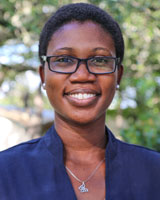Introduction
Spirituality has been and continues to be a component of the clinical mental health counseling experience that needs to be addressed in the preparation and education of counselors in training (CIT). Part of providing holistic counseling involves being able to understand and engage with the mind, body, affect, and spirit of clients. This includes being competent in navigating spirituality as it pertains to the client’s mental health and well-being. In recent years, studies have shown that clients would like to incorporate or integrate their spirituality into counseling, but were not sure if they could (Pargament, Murray-Swank, & Tarakeshwar, 2005, Rose, Westefeld, & Ansley, 2008). Counseling students have expressed a desire to know how to address spiritual matters, but have stated that they do not feel trained to do so (Henriksen et al., 2015).
The value of spiritual competency was recognized by the American Counseling Association (ACA) as an area to be addressed nationally. In 2009, ACA included “Competencies for Addressing Spiritual, Ethical and Religious Issues in Counseling (ASERVIC)” (2009) as part of their stated competencies. These competencies review specific spiritual skill sets needed in areas of Culture and Worldview, Counselor Self-Awareness, Human and Spiritual Development, Communication, Assessment, and Diagnosis & Treatment. In addition, in 2014, ACA updated their Code of Ethics to specifically include spirituality.
This article will present both the student and teacher perspective on spiritual integration in counseling from a CACREP accredited program in clinical mental health counseling at Seminary of the Southwest. Awa Jangha (AJ) is the Loise Henderson Wessendorff Assistant Professor of Spiritual Integration in Counseling and Stephanie Prewitt (SP) is a graduate student and Spiritual Integration in Counseling (SIC) Scholar at Seminary of the Southwest.
How Do You Understand Spiritual Integration in Counseling?
Awa Jangha: I understand spiritual integration in counseling to be the ability to address spirituality within the counseling context for both the counselor and the client. Counselors benefit from exploring their own understanding of spirituality and religion as well as their openness, attitudes, and potential biases as it relates to beliefs different from their own. This self-awareness is an ongoing process that should occur prior to working with clients and during the counseling process (if it manifests as countertransference). Having clarity in the area of self-awareness, can enable counselors to address spirituality and religion in the context of the client’s worldview (i.e. experiences of spirituality and the impact of those experiences on the well-being of the client).
Stephanie Prewitt: I am just beginning to develop an understanding of this topic, and I have a sense that counseling as a profession is in the beginning stages of developing an understanding of it too. For me, this journey is just as much about identifying and understanding my own spiritually grounded coping skills (which are often sort of within precociousness) as it is learning to discuss and assess a client’s spiritual worldview and ways of coping. I feel that the most important step is probably just opening the door for a client — letting them know that these topics are welcome in the space that we hold for them. As with so much in counseling, it is about exploring thoughts and beliefs that we hold without being fully aware that we hold them.
What Role Do You Feel Spirituality Has in Counselor Education?
SP: For me, it has a double role. There is the professional topic it represents, which sort of overlaps with the topic of multiculturalism and includes aspects such as learning about various spiritual and religious teachings and the assessment instruments that pertain to them. And then there is the practice of it. Here at the seminary, we are invited to think of our spiritual formation as counselors, just as chaplains and spiritual directors might. We can take that as near or as far as we want to. For example, throughout our education as counselors, we are taught about self-care. Developing spiritual practices and insights can be seen as an aspect of self-care.
AJ: Spirituality is central to what provides meaning and what is considered sacred to a person. In the field of counseling, it is crucial to be able to identify what contributes to well-being and what can present as hindrances to wellness. Spirituality is often an interrelated aspect of the person of the client. Being able to identify what contributes as a support and what contributes to clients’ psychological struggle can allow for the provision of more holistic services. This is not learned by osmosis and can be empowering when taught to our graduate students both for personal application and as tools (i.e. assessment and interventions) to work with clients.
How Does Spiritual Integration in Counseling Manifest at Seminary of the Southwest?
AJ: Teaching in the environment of a seminary, where spirituality is highly valued, I enjoy incorporating spirituality into my classes. For example, this can vary from group presentations on spiritual and religious assessments, to the use of peer reviewed journal articles on the course content and spirituality, to making time in class for discussion of the impact of spirituality as a cultural component within a case study. I recently taught a course on Spiritual Integration in Counseling and Ministry and found that there are many opportunities to foster deep conversation and learning when students are given the opportunity to explore their own beliefs and the current research on addressing spirituality in counseling.
This 2018–2019 academic year has also been the pilot year of our SIC Scholar program. One student, Stephanie (SP), has been working with me as our initial SIC scholar and we have been working on a series of projects. Stephanie has observed a presentation I did on spirituality and ethics and has interviewed a local therapist/instructor on spirituality and addictions. In addition, we have been working on the creation of a course database of resources on spirituality as it pertains to each of the course subject areas within our curriculum (https://guides.ssw.edu/c.php?g=873373).
How Might You Envision the Future of the SIC Scholar Program?
SP: I hope it will become a forum for exploring the relationship between psychology, spirituality, and religion — both intellectually and professionally — and I hope it will grow. This is a topic that has been on modern society’s back burner for the last hundred years and more, and I think studying it explicitly will advance the practice of health care, education, and social justice for the new millennium. We need to talk about it out loud. Just as a counselor holds a safe place for clients to explore and understand whatever they need to come to terms with, I hope this program will hold space for its students, and for all scholars and health care workers involved in this pursuit, to do the same — this is something we, as a society, need to come to terms with.
This is, of course, very high-flown rhetoric. Here are some more down-to-earth ideas from my professor…..
AJ: My hope is that our SIC Scholar program will flourish. We plan to add a new scholar each year until we have reached our maximum of three scholars at one time. As each scholar graduates or additional spaces open up, new scholars will be added. The SIC Scholar program seeks to mentor students in the area of spiritual/religious integration in counseling and offers opportunities for research, publication, and presenting workshops to the counseling community. In addition, specialized supervision will be provided with scholars who have reached their clinical practicum and internship courses. I would love to see students passionate about spiritual integration having the opportunity to: 1) deepen their understanding (pursuing research of their own personal/professional interest within the context of SIC), 2) be able to apply their learning to their clinical work as counselors in training, and 3) be able to continue sharing their knowledge after graduation in continued roles of consultant, supervisor, teacher, counselor, and/or presenter of continuing education workshops.
What More Would You Like to See When It Comes to Teaching and Learning about Spiritual Integration?
AJ: I would like to see more emphasis of spirituality within the aspects of being, knowing, & doing for students. What I mean here is the explicit (rather than solely implicit) education on spirituality as a means of preparing students in the area of being (their therapeutic presence), knowing (the knowledge, theory, and standards achieved in coursework), and doing (the skills and interventions learned). Use of creative activities, questions, and discussions that help students to understand themselves in relation to spirituality, consider spirituality within a case conceptualization of a client, or utilize an evidence based spiritual practice in practicum are just a few examples of ways to integrate spirituality in counselor education.
SP: I agree completely with these goals — most especially the first one, because it is the hardest to teach. Sometimes I wonder, is it even possible to teach therapeutic presence? Or is it simply bringing a student into an awareness of what they already possess, and deepening that awareness? We have some resources here at Seminary of the Southwest that are not necessarily part of the counseling program, but that could certainly benefit the counseling students. One example is a recent course taught by Dr. Claire Columbo on spiritual journaling. I think a deeper integration of the counseling program with some of the seminary’s offerings (programs, theological coursework, etc.) might be helpful in this endeavor.
Conclusion
This article sought to bring two different perspectives (student and instructor) to the conversation about integrating spirituality in counselor education. It also highlighted some of the work at Seminary of the Southwest in the area of spiritual integration in counseling. Please feel free to visit our website to find out more information.
References
American Counseling Association. (2014). ACA code of ethics. Retrieved from
http://www.counseling.org/docs/ethics/2014-aca-code-of-ethics.pdf
Association for Spiritual, Ethical, and Religious Values in Counseling (ASERVIC). (2009).
Competencies for addressing spiritual and religious issues in counseling. Retrieved from http://www.aservic.org/resources/spiritual-competencies/
Henriksen, R.C., Polonyi, M.A., Bornsheuer-Bowsell, J.N., Greger, R.G., & Watts, R.E. (2015).
Counseling students’ perceptions of religious/spiritual counseling training: A qualitative study. Journal of Counseling Development, 93, 59–69. doi: 10.1002/j.1556–6676.2015.00181.x
Pargament, K. I., Murray-Swank, N.A., & Tarakeshwar, N. (2005). An empirically-based
rationale for a spiritually-integrated psychotherapy. Mental Health, Religion & Culture, 8(3), 155–165. doi: 10.1080/13694670500138940
Rose, E.M., Westefeld, J.S., & Ansley, T.N. (2008). Spiritual issues in counseling: Clients’
beliefs and preferences. Psychology of Religion and Spirituality, S(1), 18–33. doi: 10.1037/1941–1022.S.1.18



